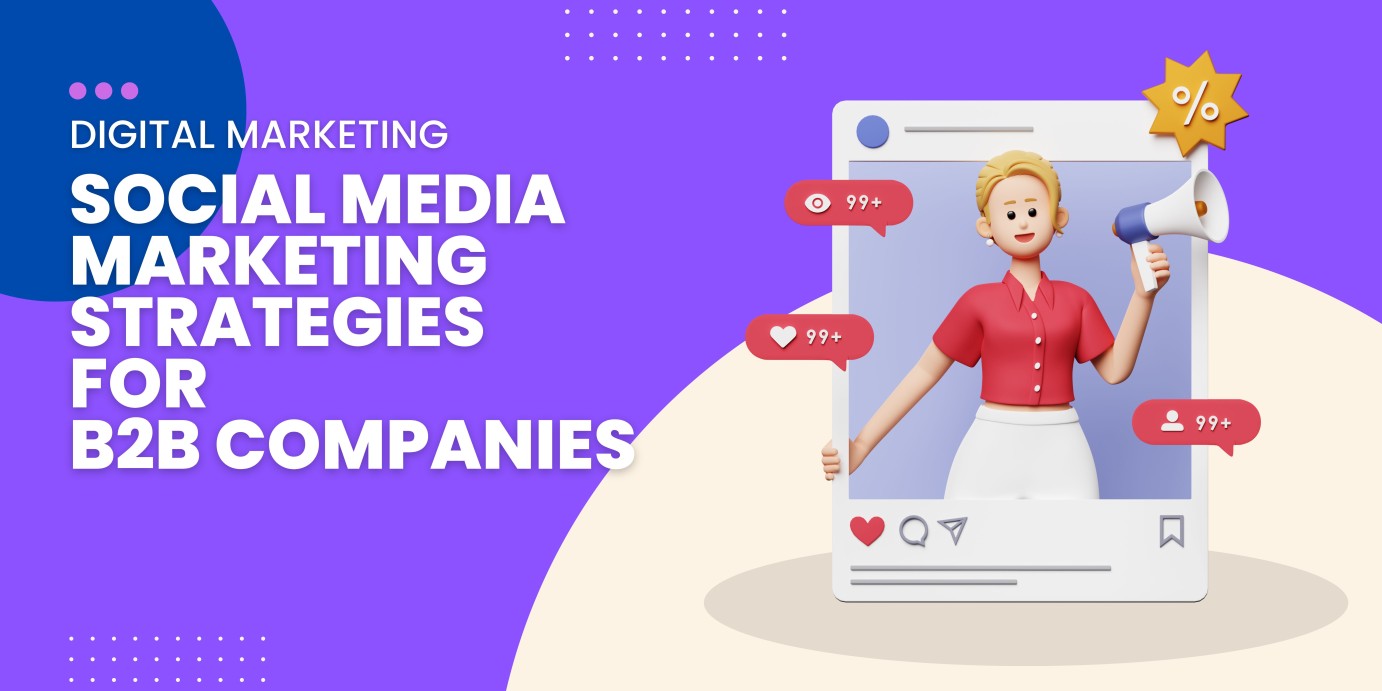In today's digital landscape, social media platforms have become essential tools for B2B companies to enhance brand awareness, generate leads, and drive business growth. While social media marketing is often associated with B2C businesses, it is equally important for B2B companies to leverage the power of social media to connect with their target audience and establish a strong online presence. In this article, we will explore effective strategies, best practices, and tips to help B2B companies succeed in their social media marketing efforts.
Platform Selection: Reaching Your Target Audience
The first step in implementing a successful social media marketing strategy is to identify the most suitable platforms for your B2B company. While popular platforms like LinkedIn, Twitter, and Facebook are commonly used, it's important to assess which platforms are most relevant to your target audience and industry. Consider factors such as demographics, user behavior, and the nature of your products or services. Here are some platform options to consider:
- LinkedIn: LinkedIn is a go-to platform for B2B professionals, offering opportunities to showcase expertise, connect with industry leaders, and generate leads.
- Twitter: Twitter allows for real-time engagement, sharing industry insights, participating in relevant conversations, and building thought leadership.
- Facebook: While more commonly associated with B2C marketing, Facebook offers targeted advertising options, groups, and communities where B2B companies can engage with their audience.
- Industry-Specific Platforms: Explore industry-specific platforms and forums where your target audience actively participates, such as Reddit or Quora.
Compelling Content Creation: Educate and Engage
Creating compelling and valuable content is crucial to capturing the attention of your audience on social media. B2B companies can provide educational content, thought leadership articles, case studies, industry insights, and engaging visuals to establish themselves as trusted authorities in their respective fields. Here are some content ideas to consider:
- Blog Posts: Share informative blog posts that address pain points, offer solutions, and showcase your expertise.
- Videos: Create informative and engaging videos to showcase your products or services, demonstrate their value, and provide tutorials or tips.
- Infographics: Condense complex information into visually appealing infographics to grab attention and communicate key messages effectively.
- Webinars: Host webinars or live sessions to educate your audience, answer questions, and provide valuable insights.
- Whitepapers or E-books: Offer in-depth guides, whitepapers, or e-books that address industry trends, challenges, and solutions.
Engaging with Your Audience
Social media is not just a broadcasting platform; it's a place for conversations and interactions. Engaging with your audience is crucial to building relationships, fostering trust, and generating leads. Here are some tips for effective audience engagement:
- Respond to Comments: Monitor comments and messages on your social media posts and respond promptly, addressing questions, concerns, and feedback.
- Join Relevant Conversations: Participate in industry-related discussions, groups, or Twitter chats to showcase your expertise and build connections.
- Tag and Mention: Tag relevant individuals or companies in your posts or comments to increase visibility and foster collaboration.
- User-Generated Content: Encourage your audience to share their experiences, testimonials, or use your branded hashtags to create user-generated content.
- Influencer Collaborations: Partner with industry influencers or thought leaders to amplify your reach and leverage their authority.
Paid Advertising and Targeting
While organic reach is valuable, incorporating paid advertising into your social media strategy can further enhance your results. Platforms like LinkedIn, Facebook, and Twitter offer powerful targeting options to ensure your ads reach the right audience. Consider these tactics for effective paid advertising:
- Audience Targeting: Utilize platform-specific targeting options to narrow down your audience based on demographics, interests, job titles, and company size.
- Retargeting: Retarget website visitors or engaged social media users with personalized ads to increase conversion rates.
- Lookalike Audiences: Create lookalike audiences based on your existing customer profiles to reach new, similar prospects.
- Custom Ad Campaigns: Tailor your ad campaigns for different stages of the buyer's journey, aligning the content with the audience's needs and pain points.
- A/B Testing: Experiment with different ad formats, visuals, copy, and targeting options to optimize your campaigns and improve results.
Measuring and Analyzing Results
To evaluate the success of your social media marketing efforts, it's essential to measure and analyze key metrics. Use social media analytics tools to gain insights into your performance and make data-driven decisions. Some important metrics to monitor include:
- Engagement: Track likes, comments, shares, and mentions to gauge audience interaction with your content.
- Reach and Impressions: Measure the number of people who have seen your posts or ads to assess your visibility and brand exposure.
- Click-Through Rates (CTR): Analyze the percentage of users who clicked on your links or ads to measure the effectiveness of your calls to action.
- Lead Generation: Monitor the number of leads generated through social media campaigns and track their conversion rates.
- Website Traffic: Use web analytics tools to track the amount of traffic driven to your website from social media platforms.
Conclusion
Social media marketing has become an integral part of the digital marketing strategy for B2B companies. By identifying the right platforms, creating compelling content, engaging with your audience, utilizing paid advertising, and measuring results, you can maximize the potential of social media to enhance brand awareness, generate leads, and drive business growth. Stay up-to-date with the latest trends, experiment with new strategies, and continuously optimize your social media marketing efforts to stay ahead in the competitive B2B landscape.

